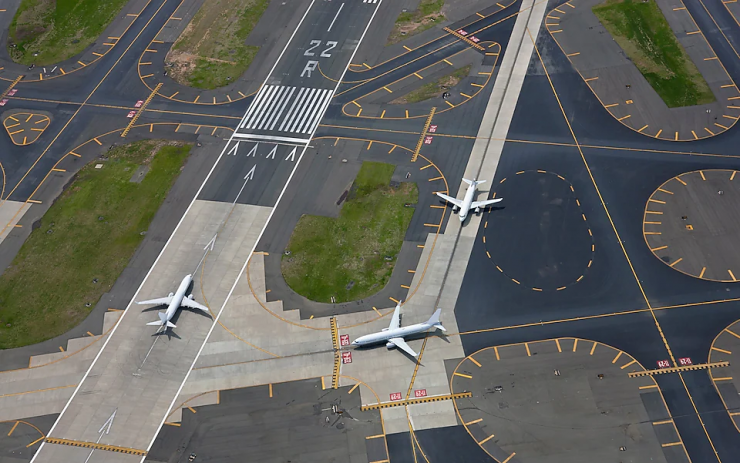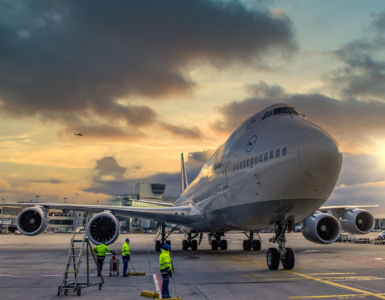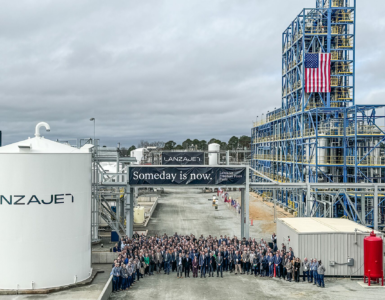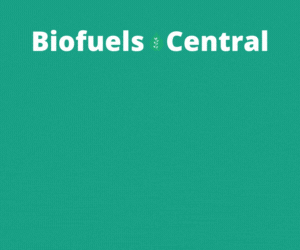Shell Calls For More Action On Aviation Emissions And Announces Ambition To Produce Around 2 Million Tonnes Of Sustainable Aviation Fuel A Year.
Royal Dutch Shell plc (Shell) today announced its ambition to produce around 2 million tonnes of sustainable aviation fuel (SAF) a year by 2025. It also aims to have at least 10% of its global aviation fuel sales as SAF by 2030.
Anna Mascolo, President of Shell Aviation:
Currently, sustainable aviation fuel accounts for less than 0.1% of the world’s use of aviation fuel1. We want to help our customers use more SAF
“With the right policies, investments and collaboration across the sector we can accelerate aviation’s progress towards net zero by 2050.
🔥 What about we co-host a webinar? Let's educate, captivate, and convert the biofuels economy!
Biofuels Central is the global go-to online magazine for the biofuel market, we can help you host impactful webinars that become a global reference on your topic and are an evergreen source of leads. Click here to request more details
“Last week we announced that we have taken a final investment decision for a new biofuels plant at our Rotterdam Energy and Chemicals Park. Shell also offers certified nature-based carbon credits to offset emissions, and we are exploring other ways to help aviation get to net zero, including hydrogen power.”
The announcement came as Shell published two reports looking at how the aviation sector can accelerate its progress towards decarbonisation.
Shell Calls For More Action On Aviation Emissions And Announces Ambition To Produce Around 2 Million Tonnes Of Sustainable Aviation Fuel A Year
Decarbonising Aviation: Cleared for Take-off is a joint report by Shell and Deloitte, based on the views of more than 100 aviation industry executives and experts. It says that the current global industry targets are not ambitious enough, and that the aviation sector should aim to achieve net-zero emissions by 2050. The report outlines 15 ways to reduce emissions between now and 2030 that will help aviation to reach net zero by 2050.
Shell’s companion report Decarbonising Aviation: Shell’s Flight Path outlines how Shell, as one of the world’s largest suppliers of aviation fuel and lubricants, can help its aviation customers decarbonise. It announces Shell’s ambition to produce around 2 million tonnes of SAF a year by 2025. Currently, Shell supplies SAF made by others. Achieving the new ambition would make Shell a leading global producer of SAF and support the decarbonisation of the aviation sector.
The SAF production ambition would align with Shell’s target of becoming a net-zero emissions energy business by 2050, in step with society.
The ambition was announced the week after Shell said it will build a biofuels facility at the Shell Energy and Chemicals Park Rotterdam, the Netherlands, with the ability to produce 820,000 tonnes of low-carbon fuels a year, including SAF.
SAF has a key role to play in decarbonising air travel. Compared with conventional jet fuel derived from fossil fuels, when used neat SAF has the potential to cut life-cycle emissions from aviation by up to 80%2. It can be used immediately as a drop-in fuel, blended with conventional jet fuel, without the need for a fundamental change in infrastructure or aircraft design.
To accelerate the decarbonisation of aviation, Shell believes a comprehensive regulatory regime is needed, one that encourages consistent customer demand and provides fiscal support to drive infrastructure development, new technologies and SAF production plants. To this end and to stimulate demand, Shell has been calling for and fully supports the introduction of ambitious and feasible SAF blending mandates.
Key highlights from the Decarbonising Aviation: Cleared for Take-off report include:
- Aviation has often been considered a sector that will decarbonise later than others. This attitude should be replaced by a greater sense of ambition.
- Choosing SAF as the primary means of decarbonisation has the advantage of avoiding the need to redesign aircraft or airport infrastructure.
- More ambitious efforts are required and investments must start sooner if SAF is to be adopted at scale within 15 years.
- The uptake of certified carbon offsets must significantly increase in the short term, so they can play as full a role as possible in the early stages of decarbonisation.
- In parallel, there is a need to invest in less mature propulsion technologies like electric and hydrogen-powered aircraft, and for these to play a role in short-haul flights before 2050.
Quotes from Deloitte and study participants
- Tarek Helmi, Partner, Deloitte Netherlands: “Decarbonising aviation can be done. Collaboration within the sector and also across sectors is essential to scale up the demand for and production of sustainable aviation fuel (SAF). Working with more than 100 global business leaders and industry executives around the world we defined 15 solutions, which when integrated, would systematically decarbonise the sector and enable net-zero emissions by 2050.”
- Paul Stein, Chief Technology Officer, Rolls-Royce: “The journey to decarbonising aviation relies on cross-sector collaboration, like the longstanding relationship between Rolls-Royce and Shell. We are actively pursuing technology levers – including improving aircraft efficiency, accelerating the availability of lower carbon fuels, and exploring new technologies – that will be needed to achieve net zero carbon. This report sets out some of the barriers that must be overcome and it is clear that no one party can tackle them alone. Continued collaboration across countries, sectors and companies will be key.”
- Si-Yeon Kim, Chief Risk & Compliance Officer and Executive Chair of ESG, American Express Global Business Travel (GBT): “Travel is a force for good, connecting people across the world and generating global prosperity. Aviation in particular has an unparalleled power to make the world accessible for everyone. But with that power comes responsibility: industry actors can make travel more sustainable with carbon offsets and carbon insets, with sustainable aviation fuel (SAF) emerging as the most promising decarbonisation solution. Corporate investment in credible carbon offsets and SAF can restore consumer confidence and trust in the intrinsic value of travel. Now is the opportune time to capitalise on these opportunities and we can solve this together.”
- Thorsten Lange, Executive Vice President for Renewable Aviation, Neste Corporation: “Neste supports the key findings of this report which addresses why aviation needs to change, can we and how quickly can we change. The recently issued IPCC report says that the case for action is clear. It is now critical that policy proposals in the EU, UK and the USA, as well as other countries, support the use of sustainable aviation fuel (SAF), which will be the main way by which aviation reduces its own net emissions by 50% or more by 2050. The good news is that SAF is available now, and production can be ramped up with current production methods, so long as we do not restrict the use of the various available sustainable feedstocks. Demand for SAF is growing, with corporate and other end customers now showing willingness to pay the incremental cost to deliver real in-sector reductions in greenhouse gas emissions on their aviation travel and air freight.
READ the latest news shaping the biofuels market at Biofuels Central
SHELL CALLS FOR MORE ACTION ON AVIATION EMISSIONS AND ANNOUNCES AMBITION TO PRODUCE AROUND 2 MILLION TONNES OF SUSTAINABLE AVIATION FUEL A YEAR, Sep 20, 2021








